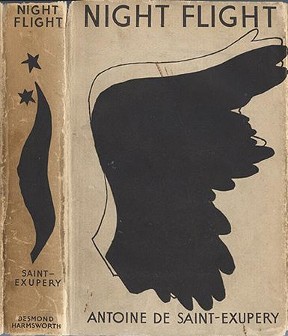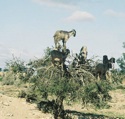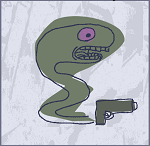|
In this thread, we choose one work of Resources: Project Gutenberg - http://www.gutenberg.org - A database of over 17000 books available online. If you can suggest books from here, that'd be the best. SparkNotes - http://www.sparknotes.com/ - A very helpful Cliffnotes-esque site, but much better, in my opinion. If you happen to come in late and need to catch-up, you can get great character/chapter/plot summaries here.  For recommendations on future material, suggestions on how to improve the club, or just a general rant, feel free to PM the moderation team. For recommendations on future material, suggestions on how to improve the club, or just a general rant, feel free to PM the moderation team.  Past Books of the Month [for BOTM before 2019, refer to archives] 2019: January: Roadside Picnic by Arkady and Boris Strugatsky February: BEAR by Marian Engel March: V. by Thomas Pynchon April: The Doorbell Rang by Rex Stout May: Thinking, Fast and Slow by Daniel Kahneman June: 1491: New Revelations of the Americas Before Columbus by Charles C. Mann July: The Art of Fielding by Chad Harbach August: Memoirs of Extraordinary Popular Delusions and the Madness of Crowds by Charles Mackay September: Picnic at Hanging Rock by Joan Lindsay October: Her Body and Other Parties by Carmen Maria Machado November: The Maltese Falcon by Dashiell Hammett December: Moby Dick by Herman Melville 2020: January: The Jungle by Upton Sinclair February: WE by Yevgeny Zamyatin March: The Autobiography of Benvenuto Cellini by Benvenuto Cellini April: The Decameron by Giovanni Boccaccio May: Black Lamb and Grey Falcon by Dame Rebecca West June: The African Queen by C. S. Forester July: The End of Policing by Alex S. Vitale August: The Merry Adventures of Robin Hood, of Great Renown in Nottinghamshire, by Howard Pyle September: Strange Hotel, by Eimear McBride October:Kwaidan: Stories and Studies of Strange Things (怪談)("Ghost Stories"), by Lafcadio Hearn November: A Libertarian Walks Into a Bear: The Utopian Plot to Liberate an American Town (And Some Bears) , by Matthew Hongoltz Hetling December: Ignition!: An Informal History of Liquid Rocket Propellants by John Drury Clark 2021: January: The Mark of Zorro by Johnston McCulley February: How to Read Donald Duck by Ariel Dorfman and Armand Mattelart March: Carrier Wave by Robert Brockway April: The Third Policeman by Flann O'Brian May: You Can't Win by Jack Black June:Treasure Island by Robert Louis Stevenson July:Can Such Things Be by Ambrose Bierce August: Swann's Way by Marcel Proust September:A Dreamer's Tales by Edward John Moreton Drax Plunkett, 18th Baron of Dunsany October:We Have Always Lived in the Castle by Shirley Jackson November:Strong Poison by Dorothy Sayers December:Hogfather by Terry Pratchett 2022: January: The Sun Also Rises by Earnest Hemingway February: Les Contes Drolatiques by Honore de Balzac March: Depeche Mode by Serhiy Zhadan April: Kalpa Imperial by Angélica Gorodischer (Trans. Le Guin) Current:  Book available here: https://archive.org/details/nightflight00sain/mode/2up ("books to borrow") https://www.amazon.com/Night-Flight-Harbrace-Paperbound-Library/dp/0156656051 This book was published in 1931, so is out of copyright most places that aren't America; if you're in a country where it's open season, then feel free to grab it from one of these sources: https://usa1lib.org/s/Antoine%20De%20Saint-Exupery%20Night%20Flight/?e=1 https://www.fadedpage.com/showbook.php?pid=20150364 (free, French) http://gutenberg.ca/ebooks/saintexuperya-voldenuit/saintexuperya-voldenuit-00-h.html (free, French; readable in Google Translate!) About the Book quote:The book is based on Saint-Exupéry's experiences as an airmail pilot and as a director of the Aeroposta Argentina airline, based in Buenos Aires. The characters were inspired by the people Saint-Exupéry knew while working in South America. Notably, the character of Rivière was based on the airline's operations director Didier Daurat. With an introduction by André Gide, the novel of only 23 short chapters was published by Éditions Gallimard in 1931 and was awarded the Prix Femina for that year. In 1932 it was translated into English by Stuart Gilbert as Night Flight and was made a Book of the Month Club choice in the United States. In the following year, Saint-Exupéry's friend Jacques Guerlain used the book's title as the name for his scent Vol de Nuit. The bottle was a blend of glass and metal in Art Deco style with a propeller motif.[2 quote:Saint Exupéry's Vol de nuit, based on real-life events in South America, had won the 1931 Prix Femina, one of the main French literary prizes (awarded by a female jury).[4] Prior to this award, he had been little known outside of the literary sphere, but as a result of the prize, received widespread recognition and attention from Hollywood About the author quote:Antoine Marie Jean-Baptiste Roger, comte de Saint-Exupéry,[3] simply known as Antoine de Saint-Exupéry (UK: /ˌsæ̃tɪɡˈzuːpɛri/,[4] US: /-ɡzuːpeɪˈriː/,[5] French: [ɑ̃twan də sɛ̃t‿ɛɡzypeʁi]; 29 June 1900 – 31 July 1944), was a French writer, poet, aristocrat, journalist and pioneering aviator. He became a laureate of several of France's highest literary awards and also won the United States National Book Award.[6] He is best remembered for his novella The Little Prince (Le Petit Prince) and for his lyrical aviation writings, including Wind, Sand and Stars and Night Flight. quote:Saint-Exupéry's first novella, L'Aviateur (The Aviator), was published in 1926 in a short-lived literary magazine Le Navire d'Argent (The Silver Ship).[23] In 1929, his first book, Courrier Sud (Southern Mail) was published; his career as an aviator and journalist was about to begin. That same year, Saint-Exupéry flew the Casablanca—Dakar route.[citation needed] quote:
References and Other Material The book was made into a 1933 film starring Myrna Loy and John Barrymore: https://en.wikipedia.org/wiki/Night_Flight_(1933_film) Some clips are here: https://www.youtube.com/watch?v=InMAlgLl9dg quote:Vol De Nuit, a masterpiece from 1933 that is still in production, is perhaps the house of Guerlain’s most difficult, troubling, and mysterious perfume. Of the handful of still extant creations by Jacques Guerlain, it is this scent – Night Flight – based on a delicate and poetic novel by Antoine de Saint-Exupery, that is the most unreachable and impenetrable of his perfumes: strange, distant, opaque https://theblacknarcissus.com/2015/03/20/journey-into-light-vol-de-nuit-by-guerlain-i933/  Pacing  Read as thou wilt is the whole of the law. Please post after you read! Please bookmark the thread to encourage discussion. References and Further Materials https://www.tor.com/2014/06/04/entanglement-angelica-gorodischers-kalpa-imperial/ https://smallbeerpress.com/tag/angelica-gorodischer/ Discussion of Past Months You can still keep talking about books from prior months, too! Just keep comments for those books in their respective threads -- that's why we link them all at the top! The party doesn't have to stop just because another has started! Suggestions for Future Months These threads aren't just for discussing the current BOTM; If you have a suggestion for next month's book, please feel free to post it in the thread below also. Generally what we're looking for in a BotM are works that have 1) accessibility -- either easy to read or easy to download a free copy of, ideally both 2) novelty -- something a significant fraction of the forum hasn't already read 3) discussability -- intellectual merit, controversiality, insight -- a book people will be able to talk about. Final Note: Thanks, and we hope everyone enjoys the book! Hieronymous Alloy fucked around with this message at 02:53 on May 4, 2022 |
|
|
|
|

|
| # ? May 4, 2024 21:21 |
|
focus on flight and machinery (and service to this machinery at the expense of the organic), the unsentimental discarding of the old in favor of the new, the explicit call to sacrifice men into the maws of machinery in order to advance and strengthen society... but enough about the futurist manifesto
|
|
|
|
I read it. It's a book. I really don't have anything to say, except that despite the foreword's claim to the contrary the boss character is a piece of poo poo. I just finished reading Homicide, which looks at the daily work of homicide detectives. When starting Night flight I hoped it was going to be something like that, and I got some of that, but in very small doses, the book was busier trying to make some grand point. It has some good scenes, but others made me go "dude chill, it's just postal delivery". I'm really surprised it had as big an impact as the wikipedia page makes it seem like.
|
|
|
|
Air mail was a huge, huge deal in its time because it meant much faster transport of parcels and private information without some of the physical restrictions of other methods; at the same time, it also had a significant and public deathtoll in pilots while the infrastructure of regular flight safety technology was still being developed and standardized. All of this was during an era, the golden age of aviation, where flight was still a frontier-breaking, high-risk activity by pioneers, explorers and military veterans, so it was front and center in the public imagination. Most people during this period would, if anything, have a blurry photograph of what it would look like to be above the clouds. Discendo Vox fucked around with this message at 02:49 on May 9, 2022 |
|
|
|
The boss character reminded me of the king in the little prince, except not actually aware of his limitations.
|
|
|
|
I did enjoy this, although right at the end I just had a bell rung in my head near the end: you take the opposite of everything this book does, and you end up with Airplane! Maybe I shouldn't have watched it last week. But everything about Night Flight is so, so serious in how everyone acts. Considering how big of a hit this was, and the hard-nosed characters it has, this seems like it was very influential on how you would write every pilot disaster film in the future.
|
|
|
|
Recently finished this, taking my time with it deliberately to make the eighty-odd pages last longer. There are some lovely images and some exciting and powerful moments, like the final approach to Buenos Aires and the beautiful descriptions of the towns and lights and so on. But I have been left feeling completely blank. I understand the historical context, and that in the 1930s airmail and aviation in general were still a source of wonder and exhileration for the average reader. So perhaps it's just a generational/cultural gap? I don't know. Maybe if I'd read this as a young teen I would have been more excited by it? It mostly made me curious to re-read Roald Dahl's Going Solo because I remember that being properly engrossing as a young'un.
|
|
|
|
Next month's book will be The Forgotten Beasts of Eld by Patricia McKillip
|
|
|
|
|
Finally tracked down a copy of this.
|
|
|
|
I'm reading this in both French and English, mainly to remind myself how bad my French has gotten since school (worse than I thought, in fact) and while the English translation is solid, it's obviously not one to one, interpreting a foreign text is always somewhat of a creative art. To wit, the opening paragraph in English: quote:Already, beneath him, through the golden evening, the shadowed hills had dug their furrows and the plains grew luminous with long-enduring light. For in these lands the ground gives off this golden glow persistently, just as, even when winter goes, the whiteness of the snow persists. but en francais: quote:Les collines, sous l'avion, creusaient déjà The bold part is largely omitted from the English, and it changes the vibe. It's more poetic. To me it reads like: "…the plains became luminous, but it was a useless light. For this land doesn't give up it's gold, just like after winter it doesn't give up its snow."
|
|
|
|
https://twitter.com/alloy_dr/status/1533272607872663552?s=20&t=u3YP6VrFjS0X8QSwQZz2Ow
|
|
|
|
|

|
| # ? May 4, 2024 21:21 |
|
I read this book in 35 minutes but I felt that there were some things lost in translation. Some nice prose though anyways.
|
|
|













